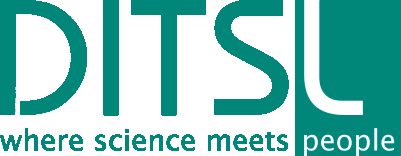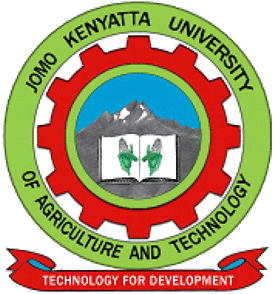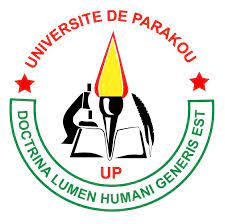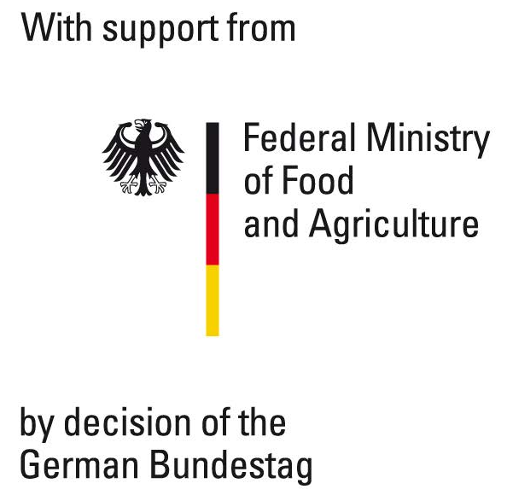
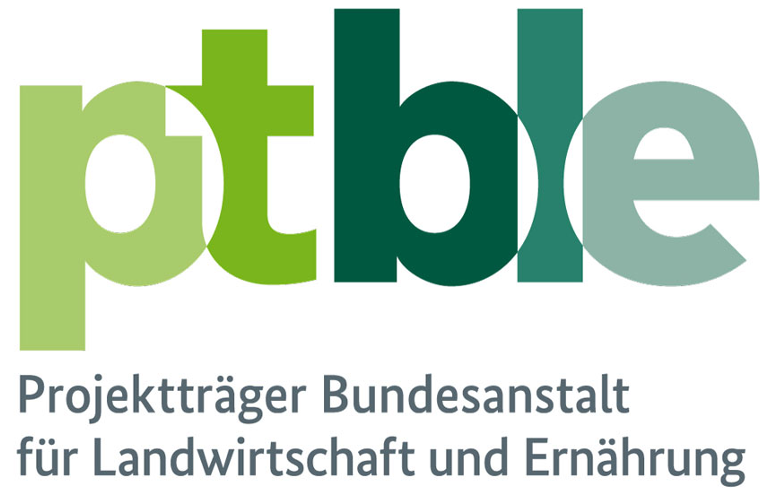
Final report and publications
NaviNut: Projektsteckbrief_Projektende
Policy Brief: Mothers’ contribution to knowledge co-creation in local diagnosis and management
Project summary
NaviNut investigates food environments in East and West African drylands using an actor- and activity-oriented, transdisciplinary research approach with the aim of enhancing women’s agency in their different food-, nutrition- and health-related roles, and to support their capacity to navigate their rapidly changing food environments. NaviNut integrates knowledge, perspectives and interests of mothers from different socio-economic backgrounds, food processors and retailers, community health workers, regulators and various scientific disciplines. The objectives are to a) understand the complexity and dynamics of women’s decision-making in feeding their young children; b) contribute to the design of healthy food environments by increasing accessibility and desirability of locally available, highly nutritious, traditional food products; and c) improve community health services by designing appropriate nutritional dialogue models that enhance women’s learning on child nutrition. NaviNut will work in rural and (peri-)urban areas of drylands in northern Benin and northern Kenya to capture changing lifestyles and nutritional habits, and to increase the scope for outscaling its results in sub-Saharan Africa.
Consortium
German Institute for Tropical and Subtropical Agriculture (DITSL), Germany (coordinator)
South Westphalia University of Applied Sciences, Faculty of Agriculture (SWUAS), Germany
Prolinnova - PROmoting Local INNOVAtion in ecologically oriented agriculture and natural resource management, Germany
University of Parakou (UP), Benin
University of Abomey-Calavi (UAC), Benin
Center for Research and Development in Drylands (CRDD), Kenya
Tropical Institute of Community Health and Development (TICH), Kenya
Jomo Kenyatta University of Agriculture and Technology (JKUAT), Kenia
Background
Global change processes induce complex transformations in African dryland societies. This strongly affects the nutritional situation of dryland inhabitants and makes it difficult for them to acquire balanced and healthy diets, resulting particularly in high malnutrition rates for children under 5 years.
In most dryland areas, nutritional interventions (governmental / nongovernmental) have not achieved the intended improvements, also because the nutritional recommendations are not adopted. We see two main reasons for this failure: a) a lack of understanding as to why nutritional recommendations (e.g. increase dietary diversity) are not taken up by mothers, and b) a lack of year-round supply of highly nutritious food products in drylands. Both reasons underline the necessity to increase our understanding of consumers’ “personal food environment” (i.e. food accessibility, affordability, convenience, desirability) and how this influences child-feeding practices.
In order to contribute to improved family and child nutrition and to more regular consumption of safe, nutritious and healthy foods in African drylands, NaviNut explicitly targets women in their different roles as i) mothers responsible for child and family nutrition and health; ii) value-chain actorsinvolved in production and processing of highly nutritious traditional food products (TFPs); and iii) citizens whose perspectives and contextual needs must be considered in governmental service provision.
Objectives
NaviNut aims at enhancing women’s agency in their different food-, nutrition- and health-related roles and at supporting their capacity to navigate their changing food environments.
NaviNut’s main objectives are to:
a) understand the complexity and dynamics of women’s nutritional decision-making in child-feeding practices, including their purchase and consumption criteria;
b) contribute to designing healthy food environments by increasing accessibility, convenience and desirability of locally available, highly nutritious TFPs with emphasis on consumer communication in order to nudge healthier purchase and consumption decisions;
c) mobilise this knowledge to build capacity of community health volunteers (CHVs) and improve promoted child-nutrition and healthcare packages to better respond to contextual conditions as well as mother’s needs and capacities
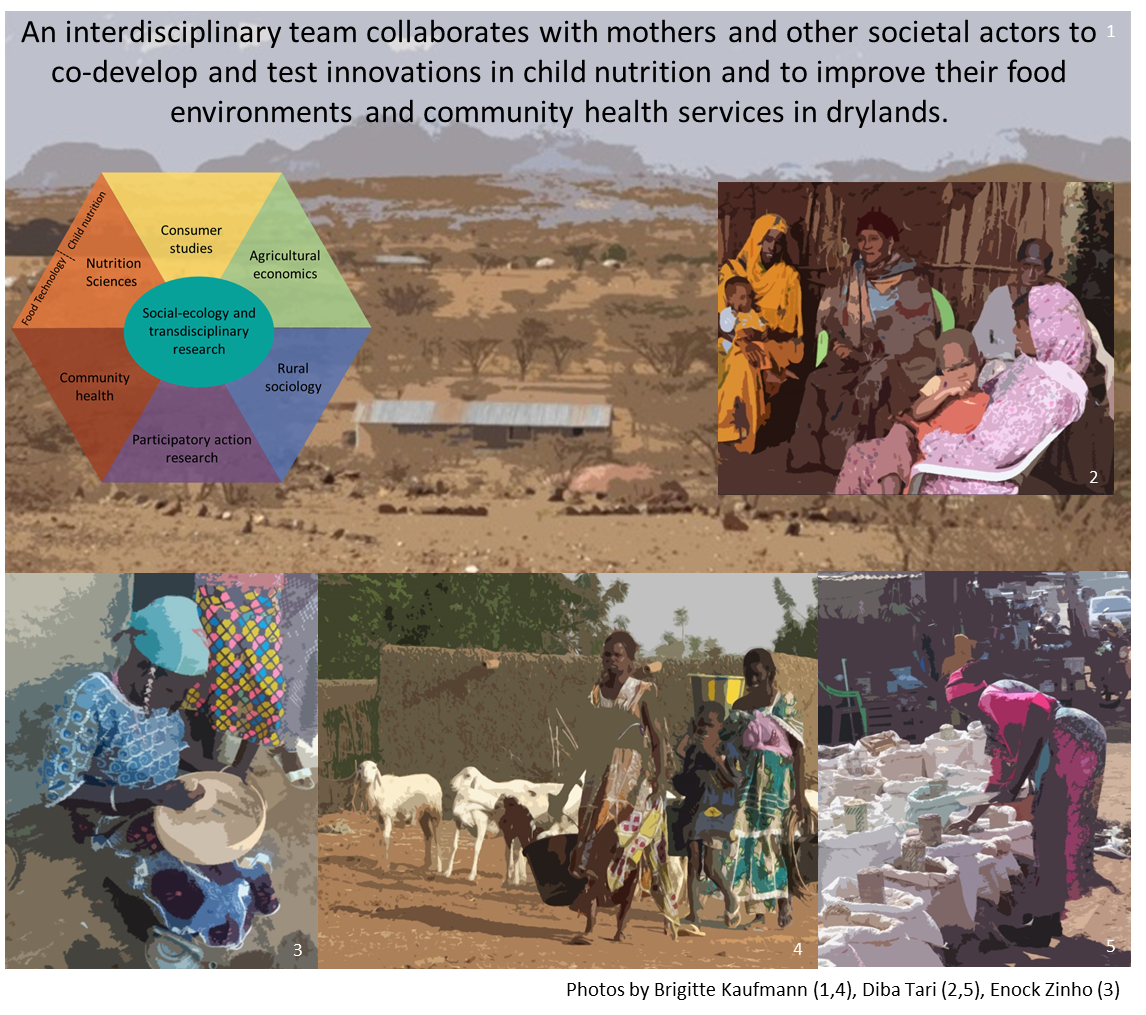
Short Description
NaviNut investigates food systems in rural and periurban areas in the drylands of northern Kenya and northern Benin.
In a transdisciplinary research approach, scientists of different disciplines, women in the study areas (in different roles as mothers, consumers/citizens and processors of TFPs) and other value-chain actors (e.g. community health personnel, social workers, kindergartens/schools, food processing micro- and small-scale enterprises (MSEs)) engage in multi-actor co-innovation processes. NaviNut seeks to identify and build on “positive deviance”: innovation by women who use locally avail-able resources to feed their children better than do other wom-en in the same area. Peer-to-peer learning, participatory experimentation and participatory innovation development using action funds (local innovation funds) are core to achieving the contextual knowledge gains and practical outputs. Technological innovations for small-scale processing and packaging will make it possible for women entrepreneurs and other actors to improve their livelihoods by producing and marketing healthy, safe, tasty and culturally acceptable convenience products based on highly nutritious traditional food products.
NaviNut aims to reveal customary child-feeding practices, their contextual reasons and physical and social cues (e.g. so-cial/cultural norms, questions of identity, influence by peers). In order to understand nutritional behaviour, second-order observation is used to elicit the perceptions, emotions and knowledge of mothers that influence their child-feeding prac-tices and dietary decisions.
NaviNut uses eye-tracking data to inform labelling and adver-tising strategies and templates for improved information shar-ing on nutritional value of its products. It will develop commu-nication strategies and materials related to child food and nu-trition that appeal to mothers’ cognitive and emotional needs with the aim to nudge healthier purchase decisions. It will test an ITC tool to share visual and oral information on child nutri-tion derived from peer-to-peer exchanges.
NaviNut will identify gaps in the governmental support system for implementing sustainable and scalable child-nutrition interventions, including CHVs’ training needs to effectively support nutritious child-feeding practices. Communication for Development (C4D) will be used to facilitate dialogue, participation and engagement of communities and networks for positive social and behaviour change. NaviNut will build CHVs' capacity to facilitate an appropriate and respectful community-dialogue model.
